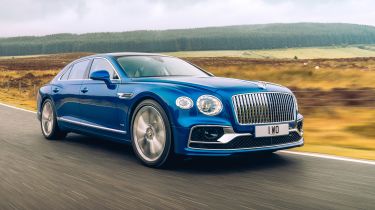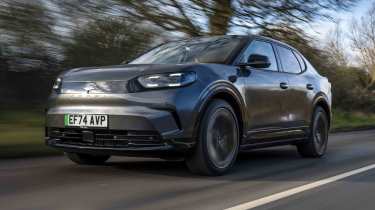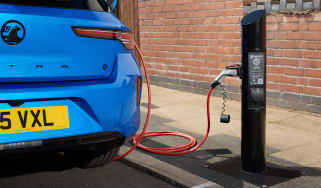What is the luxury car tax? Expensive Car Supplement explained
All you need to know about the UK’s luxury car tax, applied to ‘expensive’ cars costing over £40,000

The luxury car tax, also known as the Expensive Car Supplement, is an additional amount of Vehicle Excise Duty which is applicable to vehicles with a total list price of over £40,000 when purchased brand new.
Introduced in April 2017, the luxury car tax is payable in years two to six of a car’s life. The Expensive Car Supplement rate is currently £425 and is paid on top of the flat £195 annual rate for VED road tax.
As many cars now cost over £40,000, the government announced in November 2025, that from 1 April 2026, the Expensive Car Supplement threshold will increase from its current level of £40,000 to £50,000 but for electric and zero-emission cars only.
Below we’ve covered everything you need to know about the Expensive Car Supplement.
How does road tax work?
In the UK cars are taxed annually under the ‘road tax’ system that’s officially known as Vehicle Excise Duty (VED). There are different rules governing how much tax you pay depending on the age of your car.
Cars which are 40 years of age or older are tax exempt, while cars from the 2000s generally pay based on their CO2 output. Cars registered after 1 April 2017 currently pay a standard rate of £195, but adjustments are made based on various factors.

What is the luxury car tax?
Under the Expensive Car Supplement or 'luxury car tax', cars that cost £40,000 or more when new will pay an additional £425 annually for five years. This starts from the first VED car tax payment that’s made when the car is a year old.
This means the total road tax for any car costing over £40,000 is £620, paid every year until the car is six years old. Once the car reaches six years old you no longer need to pay the additional £425 luxury car tax.
The £40,000 figure includes any optional extras and is based on the manufacturer’s official list price of the car, not the price actually paid by the customer.
Are electric cars liable for Luxury Car Tax?
Electric cars costing £40,000 or more also have to pay the Expensive Car Supplement thanks to changes made to VED road tax in April 2025.
EVs in general are no longer VED tax exempt and will pay the lowest first year rate of £10, rising to £195 from the second tax payment onwards. If applicable, the £425 Expensive Car Supplement is then applied on top of this in years two to six.
In April 2026 the luxury car tax threshold is set to increase from £40,000 to £50,000, although this is for EVs and zero-emission vehicles only. Petrol, diesel, hybrid and plug-in hybrid cars will still incur the luxury car tax if they cost more than £40,000.
Luxury car tax examples
Let’s look at a couple of luxury car tax examples to explain things more clearly:
Because the tax applies based on list price including options, a car costing £39,000 with £2,000 of optional extras will attract the luxury car tax, but the same car without any options fitted will not.
A car that has a list price of £41,000 will always attract the tax even if you only pay £39,000 because of dealer discounts, incentives or promotional offers. You can check manufacturer list prices in the relevant brochures for the most accurate information, although the data is also widely available online.
Expensive Car Supplement isn’t only on expensive cars
Rapid inflation on car prices since the introduction of the Expensive Car Supplement means that this tax is now applied to many models not seen as being particularly luxurious, including higher-spec versions of mainstream models like the Hyundai Tucson, Ford Kuga and Volkswagen Golf. Many consumer and automotive industry bodies feel it should be increased to reflect the rise in car prices.
How to avoid paying the Expensive Car Supplement
If you’re thinking of buying a new car at around the £40,000 mark, it could pay to work out if the list price will be above that barrier with your chosen options added.
If it’s close, you could save money by removing one or two of them to avoid paying the Expensive Car Supplement.
The future of the Expensive Car Supplement
As mentioned above, there have been no alterations made to the level at which the Expensive Car Supplement must be paid since its introduction in 2017. This has now since changed.
In November 2025, the UK Government announced that from 1 April 2026 it would alter the Expensive Car Supplement and increase the threshold from £40,000 to £50,000. The caveat is that only electric cars or zero-emission vehicles benefit from this increase.
This means petrol, diesel, hybrid and plug-in hybrid cars costing over £40,000 would still incur the luxury car tax, while EVs like the Tesla Model Y, Audi Q4 e-tron and Kia EV6 will no longer need to pay because they come in under £50,000.
Our Car Tax Checker tool lets you check your tax status and renewal date in seconds. Check your VED car tax now...








